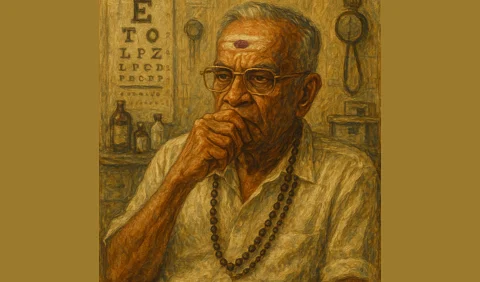After retiring from Kerala Government service in 1986 as a senior cancer specialist, he subjected himself to Upanayana (from the head of the mana), a sacred thread ceremony, which is a Hindu ritual way of initiation into the study of the Vedas, at Suryakaladi Mana, located in Kottayam. Suryakaladi Mana is an ancient Brahmin family, considered the last word in Vedas and tantric rituals in Kerala.
The rest of his life he dedicated to learning the Vedas, Upanishads, Ayurveda, Siddha, and Homeopathy seriously and developed his own integrated treatment protocol.
But he didn’t get enough support from his fellow colleagues since modern medicine considered alternative medicine quackery and a waste of time devoid of proper scientific research and backing.
Practicing Siddha medicine and similar forms of rural alternative medicine in India was banned under the Travancore-Cochin Medical Practitioners’ Act of 1953, and this was reinforced in 2018 by the Supreme Court of India. The Act required that qualified medical practitioners be trained at a recognized institution, and be registered and displayed on a list of valid physician practitioners. The Gazette list did not recognize practitioners of Siddha medicine since they were not considered trained and qualified in any institution. So, they were considered quacks.
From the 1980s onward, Dr. Mathew maintained detailed case diaries at his home clinic documenting how he cured many terminally ill patients whom modern medicine had abandoned. These records include more than 4,000 individual patient case notes, chronicling his integrative approaches and outcomes.
His patients included those even rejected by Mayo Clinic and a former Chief Minister of Kerala. He treated more than 6,000 patients successfully in his post-retirement period.


